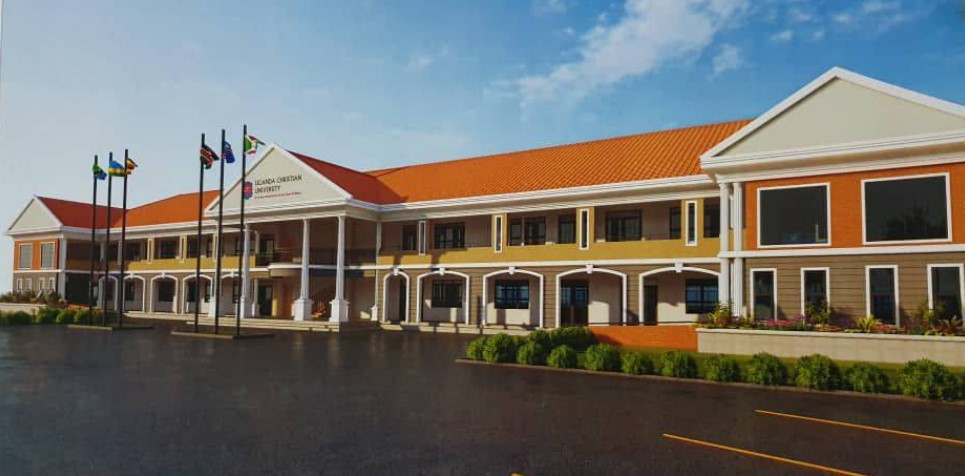By Yasiri J. Kasango
On March 20, 2020, the Ugandan government, under the leadership of His Excellency Yoweri Kaguta Museveni, shut down all academic institutions to curb the spread of COVID-19. This decision halted Uganda Christian University’s (UCU) Easter semester, thrusting the institution into uncharted waters. As the pandemic unfolded, UCU’s response and subsequent adaptations shaped its trajectory.
Rev. Dr. John Senyonyi, the then vice chancellor, envisioned continuing the semester through eLearning, a system introduced in 2017. Despite his initiative, the plan faced resistance from government authorities. Dr. John Chrysostom Muyingo, the State Minister for Higher Education, emphasised that no university should operate, online or offline, amidst the pandemic. “All Ugandans, whether in private or public schools, are under government directives. With the closure of schools, the government meant that every school activity was supposed to shut down, including any online activity,” he stated firmly.
The reopening of academic institutions in October 2020 for candidates signaled a shift in the educational landscape. This period forced UCU to reimagine its operations, ranging from academic affairs to security protocols.
A new vice chancellor
September 2020 marked a significant transition as Prof. Aaron Mushengyezi succeeded Rev. Dr. Senyonyi as the vice chancellor. The handover was conducted online, symbolising the unusual times. “I took over empty buildings. I’m a COVID-19 vice chancellor,” Mushengyezi remarked, highlighting the stark reality of his tenure’s onset.
David Mugawe, the Deputy Vice-Chancellor for Finance and Administration, reflected on the challenges posed by the pandemic. “It pushed us to the corner, forcing us to think about how the university could continue, how we could navigate through this difficult period, and how we could emerge stronger,” he said. These reflections led UCU to rethink its operations and business model.
Outsourcing of services
Facing financial constraints, UCU’s management was urged to operate with a lean budget. “The university council asked us to see how we could operate on a very lean budget. This led us to evaluate how the entire university functions,” Mugawe explained. This scrutiny identified opportunities for outsourcing services such as security, catering, and cleaning. “A service provider will charge you a flat rate, but if you have an individual in that position, there are other costs that come up. We found that the university could operate cheaper and more efficiently with external service providers,” Mugawe noted.
Outsourcing these services proved beneficial, allowing UCU to tap into the specialised human resources that service providers offer. “We advertise for security personnel, but we do not have the capacity to train them like security companies do,” Mugawe added.
UCU’s pandemic response included streamlining staff positions, leading to some redundancies. “We had to restructure staff positions, and unfortunately, some staff lost their jobs,” Mugawe stated, underscoring the difficult decisions made to align with new operational realities.
Online learning
Mugawe also highlighted that UCU is now a model for other institutions of higher learning, particularly in eLearning. “Other universities come to benchmark with us, especially regarding our e-learning platform and how we managed to sustain teaching and learning uninterrupted,” he said with pride. This reputation has attracted more students, with UCU recording a growth in enrollment. “We saw our numbers grow from 13,000 students before COVID-19 to 14,000 students post-COVID-19,” Mugawe added, showcasing the university’s resilience and appeal. The changes at UCU extend beyond student numbers. The university has embraced digital transformation, going further than its eLearning platforms and integrating technology into various academic and administrative processes. “We’ve made significant strides in digital education, ensuring that learning continues seamlessly, regardless of circumstances,” Mugawe said.
Expanding infrastructure
The pandemic’s impact also catalysed infrastructural developments. UCU successfully purchased land for its Kampala campus and constructed the main building without resorting to loans. “We were able to purchase the land and construct the main building at the two arches without borrowing,” Mugawe noted.
As UCU moves forward, the university remains committed to its mission of providing holistic education, fostering innovation, and adapting to global challenges. The journey through the pandemic has not only tested UCU’s resilience but also reinforced its vision of becoming a leading institution in higher education. “We are more than ready to face future challenges, equipped with lessons learned and a strengthened foundation,” Mugawe concluded.


